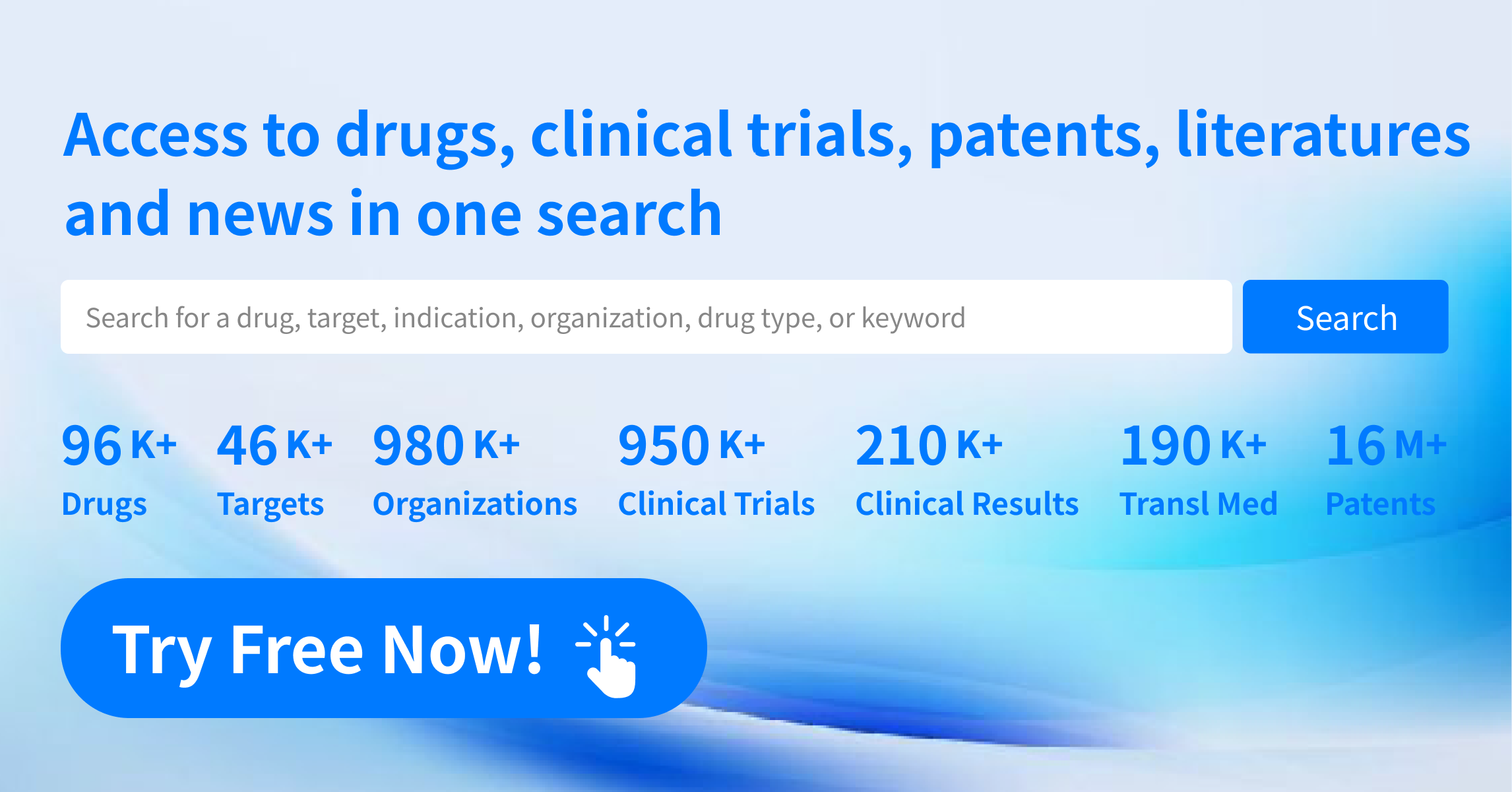Pharma Frontiers: Daily Digest of Global Pharmaceutical News – Sep 25
1.First-in-class Small Molecule Therapy Approved in the EU for the Treatment of Moderate-to-Severe Chronic Hand Eczema
On September 23, LEO Pharma announced that the European Commission (EC) has approved the marketing of Anzupgo (delgocitinib) cream for adult patients with moderate-to-severe chronic hand eczema (CHE) who are unsuitable for treatment with topical corticosteroids or have had an inadequate response to such treatment. According to the press release, Anzupgo is the first topical medication approved in the EU for the treatment of moderate-to-severe CHE in adult patients. LEO Pharma also announced that the U.S. FDA has accepted its New Drug Application (NDA) for delgocitinib cream. The approval of delgocitinib was primarily based on results from Phase 3 trials, including DELTA 1 and DELTA 2, which showed that at Week 16, a higher proportion of patients in the delgocitinib treatment group achieved the IGA-CHE success criteria compared to the vehicle control group. In DELTA 1, 20% of patients in the delgocitinib group achieved treatment success, compared to 10% in the control group. In DELTA 2, 29% of patients in the delgocitinib group met the criteria, compared to 7% in the control group (both trials had p≤0.0055).
2.UCB's IL-17A/IL-17F Antibody Approved for Three New Indications in the U.S.
On September 23, UCB announced that the FDA has approved its IL-17A/IL-17F antibody Bimzelx (bimekizumab-bkzx) for the treatment of adults with active psoriatic arthritis (PsA), adults with active non-radiographic axial spondyloarthritis (nr-axSpA) with objective signs of inflammation, and adults with active ankylosing spondylitis (AS). Bimzelx is the first treatment approved for all three of these indications. Prior to these newly approved indications, Bimzelx received its initial FDA approval in October 2023 for the treatment of moderate-to-severe plaque psoriasis in adults.
3.Haisco Pharmaceutical’s Category 1 New Drug Submits Application for a New Indication
On September 23, the CDE (Center for Drug Evaluation) website announced that the application for marketing approval of Haisco's HSK21542 injection has been accepted. According to Haisco’s announcement, this application has already been granted priority review by the CDE and is intended for the treatment of moderate-to-severe pruritus associated with chronic kidney disease in adult patients on maintenance hemodialysis. Previously, the marketing application for this drug’s indication for postoperative analgesia following abdominal surgery had also been accepted by the CDE. HSK21542 injection is a highly selective and potent peripherally acting kappa-opioid receptor (KOR) agonist independently developed by Haisco. It exhibits high selectivity and affinity, synergistically regulating potassium and calcium ion flows via G-protein involvement, blocking the transmission of pain and itch signals, and reducing the excitability of the dorsal root ganglion and peripheral sensory neurons by inhibiting the release of inflammatory mediators and neurotransmitters, providing both analgesic and antipruritic effects. The product does not cross the blood-brain barrier, allowing it to offer peripheral analgesic and antipruritic effects while avoiding central opioid-related side effects such as hallucinations, addiction, and respiratory depression.
4.Novartis' Radioligand Therapy Proposed for Priority Review to Treat Prostate Cancer
On September 24, the CDE (Center for Drug Evaluation) website announced that Novartis' Lutetium [177Lu] vipivotide tetraxetan injection is proposed to be included in the priority review process. The treatment is intended for adult patients with prostate-specific membrane antigen (PSMA)-positive metastatic castration-resistant prostate cancer (mCRPC) who have previously received androgen receptor pathway inhibitors and taxane-based chemotherapy. Public data indicates that this is Novartis' PSMA-targeting radioligand therapy, Pluvicto (lutetium 177Lu vipivotide tetraxetan, formerly known as 177Lu-PSMA-617), which was already approved by the U.S. FDA in March 2022 for the treatment of the aforementioned prostate cancer patients. Additionally, Novartis' application for a kit for the preparation of Gallium [68Ga] gozetotide injection is also proposed for priority review. After being radiolabeled with Gallium-68, this product can be used as a radiodiagnostic agent to identify PSMA-positive lesions in adult prostate cancer patients via positron emission tomography (PET).
5.Biokin Pharmaceutical’s Bispecific ADC Proposed for Breakthrough Therapy Designation
On September 23, the CDE website announced that two indications for Biokin Pharmaceutical's BL-B01D1 injection are proposed to be included in the breakthrough therapy designation. These indications are: 1) locally advanced or metastatic EGFR wild-type NSCLC that has failed after treatment with anti-PD-1/PD-L1 monoclonal antibodies and platinum-based chemotherapy, and 2) locally advanced or metastatic non-squamous NSCLC with EGFR-sensitive mutations that have failed EGFR-TKI treatment. According to public data from Biokin Pharmaceutical, BL-B01D1 is an EGFR×HER3 bispecific ADC. The company previously presented the results of a Phase 1 first-in-human study of BL-B01D1 for patients with locally advanced or metastatic solid tumors, including 89 lung cancer patients, at the 2023 ASCO Annual Meeting. The study results demonstrated encouraging efficacy of BL-B01D1 in heavily pretreated metastatic/locally advanced solid tumors, particularly in patients with EGFR-mutant NSCLC, with an ORR of 61.8% and a DCR of 91.2%. In patients with EGFR wild-type NSCLC, the ORR was 40.5% and the DCR was 95.2%. According to the prospectus released in July this year, BL-B01D1 has undergone over 20 clinical studies, including seven Phase 3 trials for later-line cancer treatments. In December 2023, Biokin Pharmaceutical's wholly-owned subsidiary, SystImmune, entered into an exclusive licensing and collaboration agreement with Bristol-Myers Squibb for BL-B01D1. The upfront payment for this collaboration was $800 million, with a potential total transaction value of up to $8.4 billion.
6.CSPC Pharmaceutical's CLDN 18.2 ADC Receives FDA Fast Track Designation
On September 23, Elevation Oncology announced that the FDA has granted Fast Track designation to EO-3021 (SYSA1801) for the treatment of advanced or metastatic gastric cancer and gastroesophageal junction (GC/GEJ) cancer patients expressing Claudin 18.2. The drug was developed by CSPC Pharmaceutical and licensed to Elevation for overseas rights in a deal valued up to $1.195 billion in 2022. EO-3021 is a potentially best-in-class, differentiated clinical-stage antibody-drug conjugate (ADC), consisting of an IgG1 monoclonal antibody targeting Claudin 18.2, linked to MMAE via a cleavable linker, with a drug-to-antibody ratio (DAR) of 2. In preclinical studies, this product demonstrated specific growth inhibitory activity against Claudin 18.2-expressing cells in vitro and exhibited strong antitumor effects in vivo in mice implanted with gastric cancer, pancreatic cancer, or lung cancer models. The product has also been proven safe in both rodent and non-human primate studies.
7.Head-to-Head PD-L1 Study: Akeso Biopharma’s Cadonilimab (AK104) Initiates Phase III Clinical Trial
On September 23, the CDE website revealed that Akeso Biopharma has initiated a Phase III clinical trial for Cadonilimab (AK104), comparing it with sugemalimab for consolidation treatment in patients with locally advanced, unresectable non-small cell lung cancer (NSCLC) who have not experienced disease progression after concurrent or sequential chemoradiotherapy. This is a randomized, controlled, double-blind, multi-center Phase III clinical study (Phase I). Notably, this marks the first head-to-head PD-L1 monoclonal antibody trial for Cadonilimab. On June 29, 2022, Cadonilimab was first approved for the treatment of recurrent or metastatic cervical cancer in patients who had failed prior platinum-based chemotherapy, making it the first domestically developed bispecific antibody drug. This year, Cadonilimab has been submitted for a second and third new indication.
8.$1.065 Billion! Novartis Leverages Generative AI Platform to Develop Biologics
On September 24, in Massachusetts, Generate announced a multi-target collaboration with Novartis to discover and develop protein therapies across multiple disease areas. The collaboration utilizes Generate's proprietary generative artificial intelligence platform, "The Generate Platform," to create potential first-in-class molecules through AI-driven optimization and de novo generation. Under the terms of the agreement, Generate will receive $65 million in upfront cash payments from Novartis, including $15 million for the purchase of Generate equity. Generate is also eligible to receive more than $1 billion in performance-based milestone payments, as well as tiered royalties in the double digits. The number of targets and therapeutic areas have not yet been disclosed.
9.Tianchen Biomedical Completes Nearly 100 Million Yuan Series B2 Financing, Led by Qiming Venture Partners
Recently, Tianchen Biomedical, a biotechnology company focused on developing innovative antibody drugs in the allergy and complement fields, announced the successful completion of nearly 100 million yuan in Series B2 financing. This round of funding was led by Qiming Venture Partners, with additional investment from existing shareholders. The funds will be used to advance Tianchen Biomedical's core projects in China, accelerate product commercialization, and support the company's international market expansion, further strengthening its competitiveness in the global biopharmaceutical sector. It is reported that Tianchen Biomedical will soon complete IND filings for LP-003 and LP-005 in the U.S. and initiate overseas bridging clinical studies. This milestone marks the company's first major step toward global expansion and will lay a solid foundation for achieving its strategic goal of global development. Tianchen Biomedical focuses on developing innovative drugs for autoimmune diseases, with a specialization in the allergy and complement fields.
How to obtain the latest research advancements in the field of biopharmaceuticals?
In the Synapse database, you can keep abreast of the latest research and development advances in drugs, targets, indications, organizations, etc., anywhere and anytime, on a daily or weekly basis. Click on the image below to embark on a brand new journey of drug discovery!




